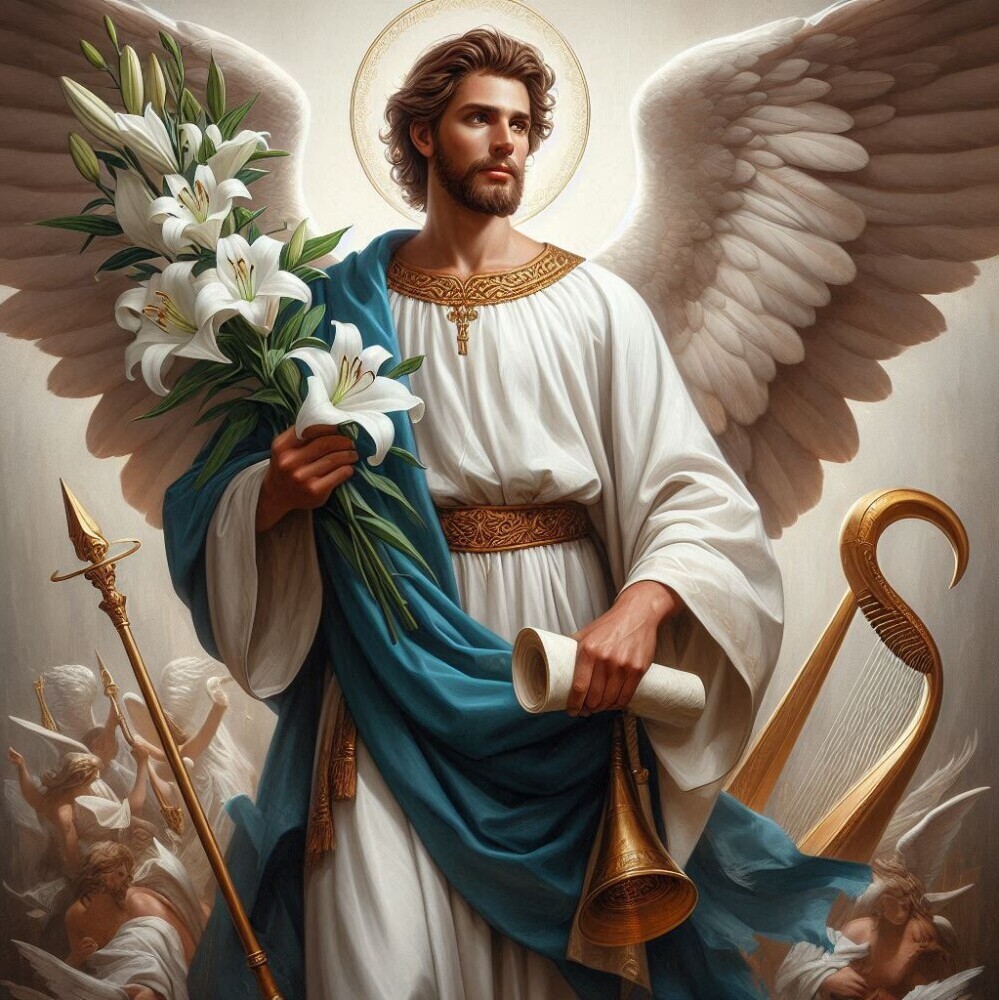
Archangel Gabriel is one of the most recognized figures across various religious traditions, notably in Christianity, Islam, and Judaism. Gabriel’s origins can be traced back to ancient texts, where he’s first mentioned. It’s in Judaism where we see early mentions, specifically in the Book of Daniel, where Gabriel is depicted as a messenger relaying visions and prophecies.
When we talk about cultural significance, Gabriel’s role isn’t limited to one religion. In Christianity, Gabriel announces the births of John the Baptist and Jesus. This character makes pivotal appearances carrying messages from God, signaling important transitions and new beginnings. Meanwhile, in the Islamic faith, Gabriel is known as Jibril—the angel who revealed the Quran to the Prophet Muhammad. This act alone underscores a longstanding legacy of Gabriel as a divine communicator.
Historically, Gabriel’s image and symbolism have evolved, adapting to the narratives of various cultures. Among these traditions, Gabriel often symbolizes disclosure and revelation. The depiction of Gabriel has shifted over centuries, from fiery confrontations in early texts to more guardian-like, comforting appearances in later Christian narratives. Each iteration adds depth to understanding Gabriel’s place in history, reminding us of the adaptability and enduring nature of this angelic figure across time and belief systems.
What’s in a Name: The Meaning Behind Archangel Gabriel
The name ‘Gabriel’ resonates through history and religious teachings, carrying not just sound, but profound meaning. Deriving from ancient Hebrew, ‘Gabriel’ combines ‘Gevura’, meaning strength or power, with ‘El’, a name for God. This creates ‘God is my strength’ or ‘Strength of God’, a fitting description for an archangel associated with delivering key divine messages.
Delving into the symbolic meanings reveals deeper insights. Gabriel, often seen as a herald of strong and transformative announcements, stands as a bridge between the divine and human worlds. By interpreting Gabriel’s name, we glean a deeper appreciation for this role—a reminder that messages, both heavenly and worldly, come with significant weight and impact.
Different cultures and languages have adapted the name over time, each adding its own flavor and narrative. In Islamic tradition, ‘Jibril’ mirrors the original essence, further reinforcing his role as a powerful communicator of divine will. Meanwhile, portrayals in Christian teachings underscore Gabriel’s standing as a key messenger and protector, mirroring the name’s strength and purpose across various stories.
The infusion of the name ‘Gabriel’ into religious texts and personal narratives makes it more than just a label; it’s a catalyst for divine intervention and worldly change. Whether invoked in scripture or whispered in prayer, Gabriel’s name signifies a call to strength, preparedness, and faith. Insight into the name’s origins and meanings guides us in understanding how deeply intertwined language and faith are, threading together centuries of belief and tradition.
Persona and Presence: Who is Archangel Gabriel?
Gabriel’s persona is as captivating as his celestial duties, embodying both authority and compassion. Across religious texts and traditions, Gabriel is often portrayed as steadfast and serene. His artistic depictions vary, from a commanding angelic figure to a nurturing presence, always aligning with the narrative at hand.
The Bible paints Gabriel as a messenger who delivers pivotal news. He carried divine announcements that altered the course of history, such as the forthcoming births of John the Baptist and Jesus. This illustrates his role as a harbinger of vital change, tasked with conveying God’s plans to humanity. In Islamic tradition, Gabriel’s role is even more integral, acting as the conduit of divine revelation for the Quran.
Beyond being a messenger, Gabriel is attributed with significant power. In many accounts, he stands as a divine enforcer, someone who possesses the strength to execute scripture’s edicts. His character is imbued with a balance of justice and mercy, a reflection of the ultimate authority he represents.
Understanding Gabriel’s roles and duties prompts us to consider his revered position within the spiritual hierarchy. Tasked with bridging the divine and human realms, his presence is both a symbol of faith and a beacon of hope. When we reflect on Gabriel’s persona, we are reminded of the comfort and guidance that celestial aid can provide, resonating deeply with those seeking strength and clarity.
Legacy of Archangel Gabriel in Famous Stories
Archangel Gabriel’s legacy is rich with stories that have transcended time, capturing the imagination and faith of people across different eras. One of the most famous biblical appearances happens in the Annunciation, where Gabriel delivers the message of the upcoming birth of Jesus to Mary. This moment represents one of the cornerstones of Christian faith, symbolizing hope and the divine plan.
In Islam, Gabriel’s legacy is equally profound. Referred to as Jibril, he is known for revealing the Quran to the Prophet Muhammad, an act that defines the very foundations of Islamic teachings. This pivotal role establishes Gabriel not only as a messenger but as a key participant in the doctrines of faith.
These narratives extend beyond religious texts. Gabriel figures prominently in countless artistic representations and literary works, embodying the timeless theme of divine intervention. Artists from the Renaissance to the modern era have captured Gabriel’s image, reflecting his enduring influence on culture and spirituality.
Moreover, Gabriel has appeared in modern media, including films and books, where he is portrayed variably as a guiding spirit, a fierce protector, or a harbinger of important messages. Such stories demonstrate Gabriel’s lasting impact, offering reassurance of divine support and guidance for those seeking strength in faith.
Reflecting on these stories and appearances, Gabriel’s legacy is one of strength, communication, and divine alignment. These tales, whether ancient or contemporary, continue to inspire devotion and trust in the unseen forces that guide spiritual journeys. By understanding Gabriel’s lasting presence, we appreciate the cultural and spiritual connections that continue to shape our world today.


